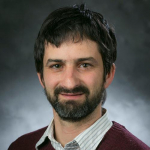Global Energy: Past, Present, and Future
Overview
Global Energy: Past, Present, and the Future offers an introduction to a wide range of topics related to energy. This multidisciplinary cluster applies approaches and methods from engineering, materials science, and social sciences including economics and history, to solve energy problems.
It studies the history of energy use and power generation by humans from ancient times to today, the development of modern thermal sciences, and the effects of different energy sources and technologies on society, economy, and military. The cluster discusses the present state-of-the-art of modern energy systems, using both renewable and non-renewable energy sources, and allows students to work on their own design project to solve a specific energy problem. Finally, the cluster explores possible materials and technologies for a better energy future by presenting a range of novel and promising approaches for clean and affordable energy. The cluster gives students the opportunity to combine theoretical knowledge with hands-on experience, practice the understanding of scientific literature, and strengthen their oral and written presentation skills in the context of global energy.
The courses listed below may count for the four Engineering majors. One semester of FOCUS may replace the free elective component for the Undergraduate Certificate in Energy and Environment or one course for the Energy Engineering Minor.
Courses
Energy 188FS - History of Energy Use and Power Generation (IJ)

Tom Cinq-Mars, Administrative Manager/ Assistant Director for Research Development in the Nicholas Institute for Energy, Environment and Sustainability
The use of energy throughout human history is explored, starting from the earliest beginnings of humanity to modern power generation. This course will consider the development of different primary energy sources over time, the history of various energy conversion and storage technologies, and the establishment of modern thermal sciences. A major focus of this course is the investigation of how these developments affected and still affect societal, economic, military, and technological change and growth. Understanding the historical trends related to energy use and power generation will allow for better informed prediction of humanity’s energy future. This course will combine engineering and social sciences to study various periods in human history, including Agricultural Revolutions, the Industrial Revolution, and Digital and Information Revolutions.
Engineering 95FS - Sustainable Energy Project: Engineering Design and Communication

Rebecca Simmons, Associate Professor of the Practice in the Department of Mechanical Engineering and Materials Science
In this course, students learn and apply the engineering design process to solve an authentic energy design problem. A variety of local and international nonprofits, companies, medical facilities, and organizations pose real-world design questions related to sustainable energy. Students are placed on a team based on their project preference, working together for the duration of the semester to solve these questions. The first half of the course is devoted to defining and researching a design problem, establishing design goals, brainstorming solutions, and using a decision matrix to select a solution. The second half of the course focuses on prototype development, iteration, and testing with the goal of meeting the established design goals. The final goal of the design project can be a functional device prototype or a new process or computer program. Students develop their communication skills by writing technical documents and giving oral presentations.
Energy 178FS - Energy Policy for a Changing World (SB)

Brian Murray, Director, Duke University Energy Initiative; Research Professor, Nicholas School of the Environment and Sanford School of Public Policy
Energy use is essential to all aspects of modern life and a significant determinant of economic and social opportunity throughout the world. Yet energy production, distribution and use, if left unchecked, can have detrimental effects on the environment and society. Of particular significance is the role that energy from fossil fuel combustion can play in disrupting the planet’s climate system. This course will explore how public policies affect the way in which energy is produced and used and how policies can be designed to advance a more accessible, affordable, reliable and clean energy system. It will draw on material from multiple disciplines to gain a deeper understanding of the breadth and depth of factors affecting our current energy system. Students will have an opportunity to directly engage with experts from the public and private sector to gain insights into policy options for a more sustainable and equitable energy system and to better understand the consequences of those policies for the environment, economy and society.
Engineering 95FS - Emerging Materials and Technologies for Energy Future (NW)

Nico Hotz, Associate Professor of the Practice in the Department of Mechanical Engineering & Materials Science and Faculty Network Member of The Energy Initiative
This course explores novel materials and technologies that have the promise to fundamentally transform the current energy infrastructure. With the ever-growing global demand for clean, efficient, and affordable energy, entirely new approaches are needed to solve the potential energy crisis humanity is facing. This course presents a broad introduction to a wide range of materials and technologies. Several faculty members from different engineering departments discuss emerging topics in materials science and engineering related to their research, including novel photovoltaic and photocatalytic materials, solar-thermal applications, thermoelectric power generation, batteries and other electrochemical systems, biomass-derived fuels, and computational materials science for discovery of novel materials. The understanding of these approaches is deepened through readings, case studies, and student presentations.

